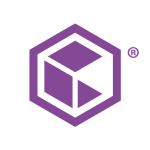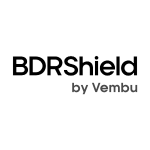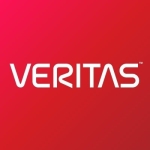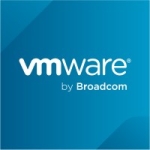What is our primary use case?
In my previous company, I used it for disaster recovery. We protected our critical workloads in another data center where we would replicate our primary workloads.
In my current company, we're in the middle of a data center consolidation project and we're using Zerto in two ways. First, we're migrating the workloads we had in one data center to another, about 250 servers. It took us about three months to complete the migration. We had to schedule all of our moves and work with the business to validate that the services were fine and accessible, once they were moved to the other data center. We've completed the migration and a data center has been shut down, and we're working on building disaster recovery for our primary workloads in Azure.
How has it helped my organization?
The main benefit is that we are centralizing our disaster recovery solution. Before, we were doing replication for some services and RecoverPoint for other services. We had a mix of tools for disaster recovery and we're trying to simplify that process with a product we can use for both. We're even contemplating using Zerto for backups as well, because we use other tools for that. But the main focus is having a specific tool, Zerto, that we can use to achieve our disaster recovery goals for on-prem services.
We also have a big push to move our DR solutions into Azure as a result of a decision from our upper levels to use Azure as our primary solution for building applications. That has allowed us to reduce costs and consolidate from three data centers to one, with our disaster recovery solution in Azure. Our focus on one tool has made it simple. We're still working through that process. Whereas the failover solutions in Azure are somewhat the same as any other data center, building out the rules and requirements for firewalls is a little more complex. We have some third-party vendors that are helping us design and build out our security into Azure.
Near-synchronous replication is one of the benefits of Zerto that drove us to choose it over some others. With typical backup and recovery, your recovery point can be 24 hours. With the near-synchronous replication, our recovery point objectives are in the seconds. That's one of the major benefits of Zerto. We don't have to run incremental backups every half hour or 15 minutes. And the recovery time is fairly quick as well. It's essentially just a shutdown and reboot of a VM.
Near-synchronous replication is incredibly important for us because we have transactional applications that work on financial and transactional databases. The fewer the number of transactions that are potentially lost, the better it is for our organization. It means we don't have to go through rebuilding those transactions. It limits the amount of data that we could possibly lose in a disaster recovery situation, amounting to just a few seconds' worth.
The near-synchronous replication with Zerto has enabled us to reduce our RPOs to two seconds instead of hours and, sometimes, days.
And Zerto really improves RTOs for moving applications. You're not waiting for restores to happen. In some cases, if you have large amounts of data on the order of hundreds of terabytes, it could literally take you a week to recover certain applications, especially if you're pulling the data down from Azure or offsite storage. Zerto greatly improves the amount of time that it takes to recover. And you don't have to do one at a time. You can move over a large chunk of servers at once and get those recoveries running and mounting in your disaster recovery environment. It's a lot quicker than running a restore from a restore product.
In addition, the solution reduces the amount of downtime we have in applications during migration. We had a large number of servers, including some critical production applications. But we didn't have to find windows where we could have those systems interrupted for a short period of time. A few minutes of downtime, compared to having the application down for hours, helped move our migration project along. We moved about 250 servers in a three-month period, and we didn't have any issues with any of the applications related to data or the like. We had two instances where there was an issue related to licensing but they were our only issues when moving these applications.
What is most valuable?
The auto-connect feature is valuable because we can set the amount of time that we delay before committing a move from one location to another, giving application teams time to validate that the move went well and everything is working before we commit those changes. That gives us the ability to roll back to the same point we were at before we shut things down, if needed.
Another nice aspect of the product is the non-intrusive failover of the application, similar to an actual disaster recovery test without impacting the services that are currently online. We can failover to an isolated environment and validate the application without impacting the production environment. We can do more testing in a non-impactful way using isolated testing. And once or twice a year, we'll do a live test that is more like what would happen if we lost a data center.
Zerto is also a very easy product to use. Although I've used it before in other environments, we introduced it to some engineers on our team and, after a couple of hours of training to go through the product, it's fairly intuitive. It's not something that takes a five-day training course to understand. You just drive through the checkboxes to build a protection group and that's pretty easy to do. You don't really have to understand coding or the like. It's GUI-driven, so it's fairly easy for an engineer to create protection groups.
What needs improvement?
You can use Zerto as a backup product, but in the discussions that I have had with them about the product, they don't really sell or talk about that feature as much. So I would be interested in improvements related to using it as a backup. If I could consolidate and use Zerto for disaster recovery as well as everyday backup and restore for situations where I need to recover something, that would be helpful. It has some of that functionality, but it's not something they promote a lot. They should point out the benefits of using Zerto as a backup and recovery product instead of just a DR product.
With Cohesity, we keep a limited amount of backups, about 14 days. That way, we can recover an individual server within the same site or we can restore data or databases that we need, in a non-DR way. We use it for typical day-to-day backup and restore. If we could use Zerto in a similar fashion for everyday backup and recovery scenarios, that would be another area where we could consolidate into a single application.
Buyer's Guide
HPE Zerto Software
December 2025
Learn what your peers think about HPE Zerto Software. Get advice and tips from experienced pros sharing their opinions. Updated: December 2025.
879,259 professionals have used our research since 2012.
For how long have I used the solution?
At my old company, I used it for several years, and at the company I'm now at we've been using it for about a year.
What do I think about the stability of the solution?
It has been rock-solid. I haven't had any issues with any of the builds or the virtual managers. It just runs.
What do I think about the scalability of the solution?
It's really scalable. You can create as many protection groups as you need, and a lot more than we have in our environment.
We do have some sites that are very low-bandwidth sites. Zerto is able to set throttling in the solution, but the throttling is set at a site-wide level. In those instances that have very low bandwidth, I can't reduce the throttling on that site. It would be nice if there were a way to control the throttling by the protection group for a specific workload.
How are customer service and support?
Our experience with their tech support has been good. I have never called them with an issue that they couldn't resolve fairly quickly.
I did call them a few times on some migrations that we were doing off-hours where certain aspects of the migration didn't work, particularly on the reverse protection. I always got a callback within 30 minutes and most of the time it was quicker. The support has always been great.
How would you rate customer service and support?
Which solution did I use previously and why did I switch?
One of the main issues was handling large data migrations. It wasn't feasible to do a big-bang move where we could move everything at one time, so we needed to schedule moves. We were able to at least replicate the information and work through a schedule for the migrations quickly. One of the major things we were trying to adjust was having to schedule the migrations and working with the team to validate that everything was functional. We were also looking to minimize the amount of time that that service would be offline during migration.
In addition, we use a combination of tools. We were doing replication with RecoverPoint, and straight backup and restore with Cohesity. While we still use Cohesity, we did get rid of RecoverPoint and we don't use VMware Site Recovery Manager because we're not recovering from VMware to VMware anymore. Cohesity does certain things and Zerto does certain things very well.
How was the initial setup?
The implementation of the migration was very straightforward. The implementation of disaster recovery into Azure was a little more complex. In part, that was because of the way our company built our Azure subscription and the rules we have in place for installation and dividing things and networks within Azure.
But from the standpoint of installing and deploying the product, it's very simple.
What about the implementation team?
We did it in-house, but we did have a Zerto engineer run through the installation into Azure with us because we did run into some issues related to permissions in Azure and some of the custom roles that are defined. We also worked with an engineer from Azure to help us, mainly around the identity portion in Azure.
On our side, it was just me and one of our other engineers involved.
What was our ROI?
We have seen ROI on the migration project which didn't require a whole bunch of people involved. We rotated two people who were able to facilitate the migrations when we scheduled them in the evenings. Sometimes, we would do up to six or seven migrations in an evening.
The main thing that held us up a little in that project was the validation process required by the business. If we had been able to just run through it, we probably would have completed it a lot more quickly.
Still, we didn't require a lot of resources to do it. It was just one engineer to handle a migration and the applications teams to validate. We didn't have to go outside the company to hire services to help us with the migration. That was helpful from a cost perspective.
What's my experience with pricing, setup cost, and licensing?
Pricing is one area where there could be some improvement. We would like to see a consumption model that would charge in a DR scenario, where you're failing over and consuming those resources, instead of a per-protected-node model. Or it could be a model based on the amount of storage space you're protecting.
Others in our organization have raised the issue of how it's licensed, where you need one for every VM you're protecting.
Which other solutions did I evaluate?
We looked at RecoverPoint and Site Recovery Manager in VMware, but they just didn't fit the type of scenario that we were looking to set up with replication and recovery into Azure. We couldn't really find too many tools that were doing it in a way that was not too intrusive. There are ways you can migrate things into Azure and run them, but there's a technical process that you have to go through to make it happen.
We were looking for a solution where we wouldn't have to flip all the switches for Azure. We wanted something straightforward that was much simpler to use. Zerto was really the only tool that we could find to do it. Others that we looked at briefly just didn't do what we wanted to do, so we didn't spend too much time on them.
Recovery with Zerto is a little more straightforward compared to other solutions, and the amount of time it takes is fairly short. You can recover with Cohesity fairly quickly, but there are a bunch of other things that you need to do, depending on how the recovery is done. If you're mounting a new virtual machine from a snapshot, which would give you a fairly quick recovery, you would still have to re-synchronize that data to keep it as a replication, and that takes some time.
Zerto is just a more straightforward solution. You're getting pretty much the same server restored in under a minute, which is the time it takes to reboot, sync, and bring it back online. Other tasks you have to do, when bringing something up in another data center, like re-IP the machine, can be automated in the Zerto replication. It makes things easier.
What other advice do I have?
My advice is to look at what you're trying to accomplish. If you're looking for a migration tool, this is a great migration tool that will help you move workloads between data centers. It's agnostic as to whether you're using VMware, Microsoft, or Azure.
And you have to look at whether you're moving a large amount of data or a large number of servers. Think about how much downtime your business can afford for moving those applications. If you're looking for something that can move an application with minimal downtime, this may be a solution for you. Or if you're moving large amounts of data, but you don't want to be down for the whole time you're restoring or moving, a synchronous product like this may be a solution for you.
We have built a disaster recovery landing zone in our Azure environment and we built an isolated environment so we could do non-intrusive failover tests into Azure, and still keep our production environment up and running. We've tested certain workloads failing over into Azure, including a standard Windows or Linux box, and specific things like SQL Server, Oracle, et cetera. It has been going well so far and we're at the point where we're defining our protection groups and security in Azure for all of our critical workloads.
We have not yet used the immutable data copies feature, but I was just at a conference and had some meetings with Zerto, some of the product professionals and engineers, and that is something that we are strongly looking into. That's because of the issue of cyberattacks and because even backup systems could become corrupted and then you're still in a bad situation. Putting the data into an immutable repository is something that we are definitely looking into. Especially in the industry that we are in, cybersecurity is a big issue.
We have also not used it for blocking threats and attacks. But the ability, in conjunction with immutable data and putting that into a vault, to look at the data that is being replicated in real time and scan it, would be a great benefit. We do use some of the best-in-class tools for that kind of protection, but this would just be another layer to help with that. It's an interesting feature and another tool that would add a layer to our cyber protection.
Zerto hasn't reduced the number of staff involved in backup and DR management. We have a pretty lean team. We try to cross-train our employees on the different products that we use. But Zerto did help to simplify the process because we can get people trained on it. They can assist in covering for other people in the group when they're out. The training only takes a couple of hours to go through the tutorials.
Disclosure: PeerSpot contacted the reviewer to collect the review and to validate authenticity. The reviewer was referred by the vendor, but the review is not subject to editing or approval by the vendor.





















